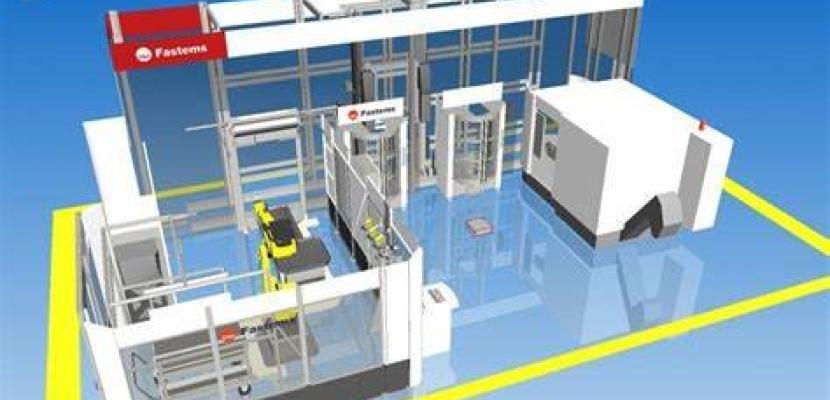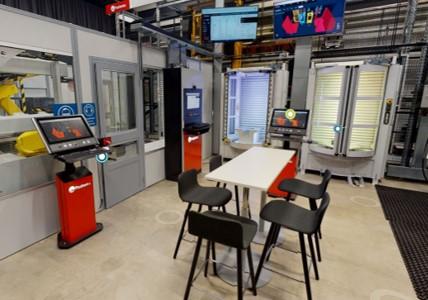
The FMS Training Center and Its Role in Engineering Education and Digital Transformation

About this good practice
The FMS Training Center in Tampere offers hands-on training in flexible manufacturing systems, essential for modern manufacturing. Students gain practical experience with technologies like robotics, machining centers, and digital twin simulations, preparing them for industrial roles through a combination of virtual and physical learning.
The practice uses a learning-by-doing approach, starting with virtual models linked to system simulators and progressing to real FMS equipment. Students develop and test programs in virtual environments before interacting with physical systems, enhancing their skills in managing industrial systems and solving challenges. The focus is on planning, operation, and analysis of manufacturing processes, emphasizing lean management and capacity optimization.
This multi-level training environment is used across vocational, applied sciences, and university studies, ensuring a comprehensive learning path from basic to advanced manufacturing expertise.
Key stakeholders include Tredu, Tampere University of Applied Sciences, Tampere University, Fastems Oy, and local industries. Main beneficiaries are students gaining industry-relevant skills and industrial partners benefiting from research, testing, and pilot opportunities. The center also supports virtual commissioning and serves as a platform for developing new technologies.
Located at Fastems' factory, the FMS Training Center is a critical hub for advanced manufacturing education and research.
Expert opinion
Resources needed
The FMS Training Center requires significant investment in advanced equipment. Human resources include faculty from Tampere University, TAMK, and Tredu, along with experts from Fastems Oy. Maintenance and ongoing operational support are key components.
Evidence of success
The FMS Training Center has successfully equipped students with practical skills in advanced manufacturing, enhancing their employability in advanced manufacturing roles. The integration of virtual and physical training methods has improved student engagement and problem-solving abilities. Industry partners benefit from research, testing, and pilot opportunities. Feedback from students and industry shows the practice meets real-world needs, preparing students for modern industrial challenges.
Potential for learning or transfer
The FMS Training Center offers valuable insights into creating a flexible, industry-relevant training environment by combining virtual and physical elements. Its multi-level approach to education, involving vocational, applied sciences, and university students, is adaptable to other regions seeking to align education with modern manufacturing needs. Key success factors include strong partnerships with industry, a hands-on learning approach, and the integration of advanced technologies like robotics and digital twins. Challenges may include the initial investment in equipment and facilities. This model could be adapted in regions with strong industrial sectors or in regions undergoing digital transformation in manufacturing.

